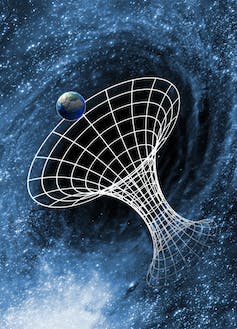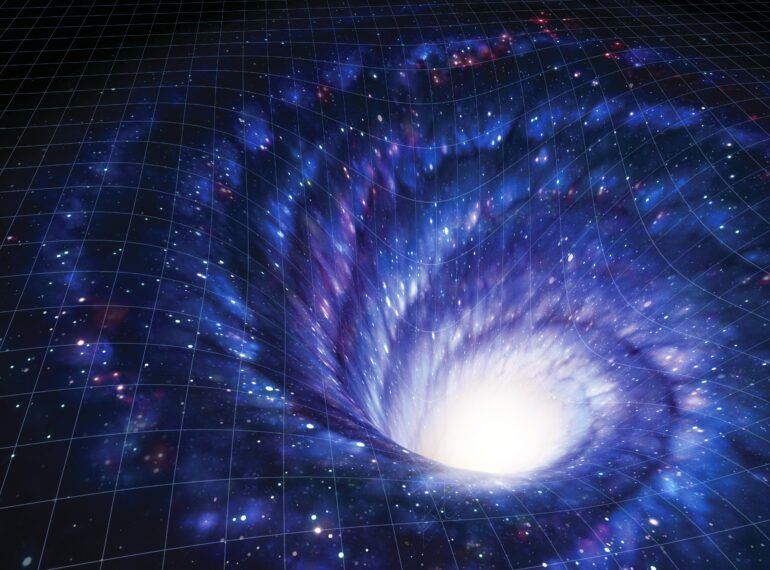
Curious Kids is a series for children of all ages. If you have a question you’d like an expert to answer, send it to [email protected].
What are wormholes and do they exist? – Chinglembi D., age 12, Silchar, Assam, India
Imagine two towns on two opposite sides of a mountain. People from these towns would probably have to travel all the way around the mountain to visit one another. But, if they wanted to get there faster, they could dig a tunnel straight through the mountain to create a shortcut. That’s the idea behind a wormhole.
A wormhole is like a tunnel between two distant points in our universe that cuts the travel time from one point to the other. Instead of traveling for many millions of years from one galaxy to another, under the right conditions one could theoretically use a wormhole to cut the travel time down to hours or minutes.
Because wormholes represent shortcuts through space-time, they could even act like time machines. You might emerge from one end of a wormhole at a time earlier than when you entered its other end.
While scientists have no evidence that wormholes actually exist in our world, they’re good tools to help astrophysicists like me think about space and time. They may also answer age-old questions about what the universe looks like.
Fact or fiction?

Scientists call the points where you would enter and exit a wormhole ‘mouths,’ while they call the tunnel itself the ‘throat.’
Victor Habbick Visions/Science Photo Library via Getty Images
Because of these interesting features, many science fiction writers use wormholes in novels and movies. However, scientists have been just as captivated by the idea of wormholes as writers have.
While researchers have never found a wormhole in our universe, scientists often see wormholes described in the solutions to important physics equations. Most prominently, the solutions to the equations behind Einstein’s theory of space-time and general relativity include wormholes. This theory describes the shape of the universe and how stars, planets and other objects move throughout it. Because Einstein’s theory has been tested many, many times and found to be correct every time, some scientists do expect wormholes to exist somewhere out in the universe.
But, other scientists think wormholes can’t possibly exist because they would be too unstable.
The constant pull of gravity affects every object in the universe, including Earth. So gravity would have an effect on wormholes, too. The scientists who are skeptical about wormholes believe that after a short time the middle of the wormhole would collapse under its own gravity, unless it had some force pushing outward from inside the wormhole to counteract that force. The most likely way it would do that is using what’s called “negative energies,” which would oppose gravity and stabilize the wormhole….



